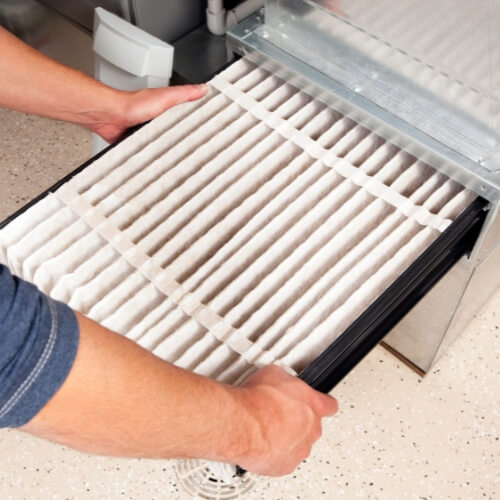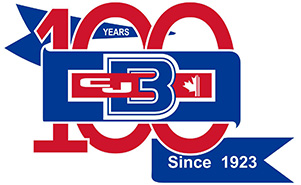Ever wondered how long your trusty furnace will keep the chill away before it’s time for a replacement?
One question often ignites concern: “How long does a furnace last?” Typically, a furnace warms our homes and hearts for about 15 to 20 years. But this is no steadfast rule; the longevity of your furnace hinges on various factors, including maintenance regularity, usage patterns, and initial quality.
Keeping a vigil on its performance can be the difference between a timely heater repair and a costly replacement. Acknowledging the signs of wear early on can extend the life of your furnace, ensuring it remains the unseen hero of your home’s comfort through countless winters.
This definitive guide from our CJ Brubacher experts will illuminate the path to understanding your furnace’s life expectancy and how to preserve its fiery essence.
The Factors Influencing Your Furnace’s Lifespan
- Improper Sizing: A unit that’s not of the right size for your home can have a drastically shortened lifespan. It’s neither wise to install an overly large system-wasting energy nor an undersized one struggling to provide the desired heat.
- Quality of Installation: A correctly installed unit tends to have a longer lifespan. Rogue installations can lead to unanticipated faults, ultimately causing the heating system to run inefficiently and exhaust its longevity.
- Poor Maintenance: Lack of regular maintenance can significantly reduce the lifespan of a furnace. Regular tune-ups and checks are instrumental in extending a heater’s life expectancy.
- Extreme Thermostat Settings: Continuously operating your heater at high settings can result in substantial wear and tear, reducing its lifespan.
Efficiency Vs. Lifespan: The Furnace Debate
You might be tossing and turning at night wondering if you should go for an electric heater, which has a longer lifespan, or a gas furnace, which heats your home quicker but has a shorter longevity.
But here’s the thing – it’s not just about one factor. When thinking about efficiency and lifespan, you need to consider other elements as well. Improper sizing, less-than-stellar installation, lack of regular maintenance, and even your thermostat settings all play a significant role in determining how long your heater will keep you warm and cozy.
Take gas furnaces, for example. They’re like the sprint runners in a marathon, delivering quick heat for your home but tiring out relatively quickly. A gas furnace usually lasts around 15-20 years. Now, that doesn’t mean it will stop working altogether after two decades; instead, its operating capabilities might not be as efficient as before.
On the other hand, electric heaters are the marathon runners, slow, but sure. Sure, they might take a bit longer to heat your home, but they make up for it with their impressive lifespan. An electric heater can last you a good 20-30 years, depending upon usage and maintenance.
Recognizing signs of an old furnace on its last legs can save you unnecessary costs down the line. If your unit is between 15 and 30 years old, particularly noisy, or if the heating bill gives you chills, it might be time to start considering a replacement.
Times are changing, and technology is constantly improving. Even if your gas furnace still has a few good years left, switching to an electric heater could be beneficial due to its longer lifespan and more environment-friendly attributes.
At the end of the day, an informed decision is the best decision. Know your furnace, recognize the signs, and remember, CJ Brubacher is here to help you make the right choice.
Maximizing the Lifespan of Your Furnace: Effective Tips
- Ensure professional installation: Having your unit installed by a certified technician guarantees its longevity. Mistakes made during the installation process could shorten its lifespan.
- Regular Maintenance: To extend the lifespan of a furnace, stick to a schedule of regular inspections, cleanings, and tune-ups by a certified HVAC technician. This is vital whether your unit runs on gas or electricity.
- Proper Use: Avoid putting too much pressure on your heater. Extreme thermostat settings can wear it out faster. Temperature moderation and stable usage patterns can help prolong the life of your furnace.
- Change Your Filters: Dirty filters make your heater work harder, reducing its efficiency and possibly its lifespan too. Regular replacements can improve your furnace’s life expectancy.
- Ensure Proper Insulation: Seal your windows and doors to prevent heat loss. Insulation can help the furnace to heat your home more effectively, reducing wear and tear on the system.
- Embrace Technology: Using a programmable thermostat can enhance your heater’s efficiency. It helps maintain a consistent temperature and reduces unwanted strain on the furnace.
Signs Your Furnace Might Be Nearing Its End

Recognizing the signs of a faltering furnace early can save you from unexpected and unwelcome chilly nights. Let’s look at some telltale signs your unit might be ready to retire:
Frequent Service Calls
If your heater has required more TLC than usual lately, it could be a sign of ongoing problems. Frequent service calls often indicate that the various components are wearing out and it could be the beginning of the end for your furnace.
Skyrocketing Energy Bills
Seeing a startling rise in your monthly energy bills? This could be your furnace’s rather unwelcome way of saying it’s losing efficiency and requiring more energy to heat your home. It might just be more cost-effective to upgrade to a newer model than to foot these inflated bills.
Performance Issues: Your Furnace Blows Cold Air
Blowing cold air is quite literally the opposite of your heater’s job. If it’s failing to keep your home cozy and warm, it’s definitely time to investigate. This could be due to a number of issues, but it’s worth talking to a professional to diagnose the problem properly.
Uneven Temperatures in Your House
Feeling toasty in the living room, but frosty in the bedroom? This could be a signal that your heater is struggling with distribution and can’t quite manage to heat your entire home evenly. Though this might also be a sign of duct problems, a consultation with an HVAC specialist will clear the air.
Excessive Noise or Strange Sounds
While all heaters make some operational sounds, unusual or loud noises can be cause for concern. From rattling to screeching, if your furnace is becoming a noise nuisance, it’s a clear sign that parts may be loose, worn out, or, worst-case scenario, the blower motor might be malfunctioning.
Is It Time to Upgrade? Evaluating Your Furnace’s Lifespan with CJ Brubacher
At the end of the day, it all boils down to knowledge and vigilance. No magic wand ensures your heater is going to chug along forever, but knowing the signs of a struggling heater and acting proactively will definitely buy you some precious time. Make sure you’re tuned into the life expectancy factors of your furnace, and keep an eye out for those telltale symptoms of a unit on its last legs.
And remember, if you’re unsure or worried, CJ Brubacher is always here to lend a hand! We’re not just about replacing and installing; we’re about education, maintenance, and helping you get the longest, most efficient life out of your existing furnace.
So why not beat the big chill and give your heater some TLC? The sooner, the better! Regular check-ups and prompt attention to repairs can add years to your furnace’s lifetime.
Don’t let the cold weather creep up on you. Feel comfortable and prepared, throughout the year. Make that call now to schedule your regular furnace maintenance with CJ Brubacher. You’ll be investing in extra years of warm and cozy moments in your home.

